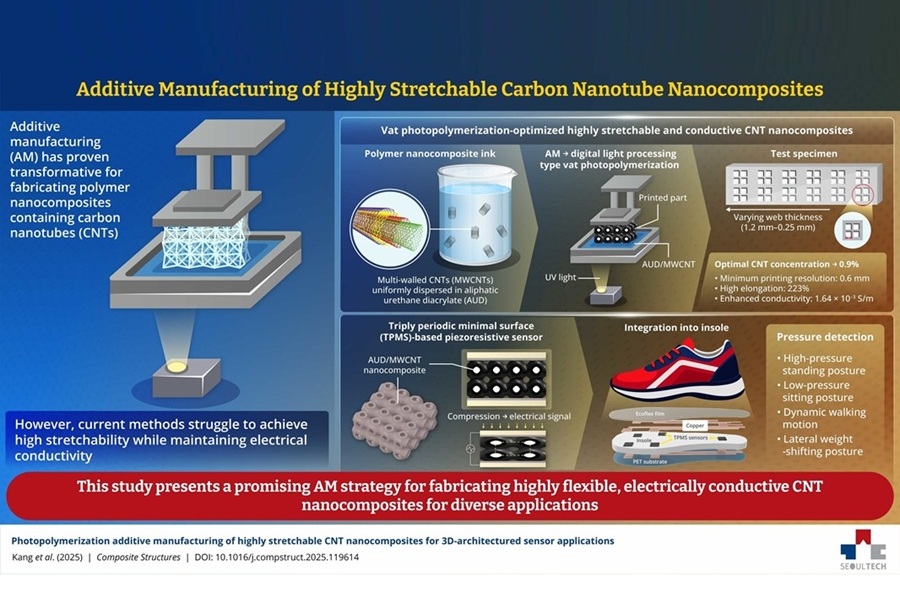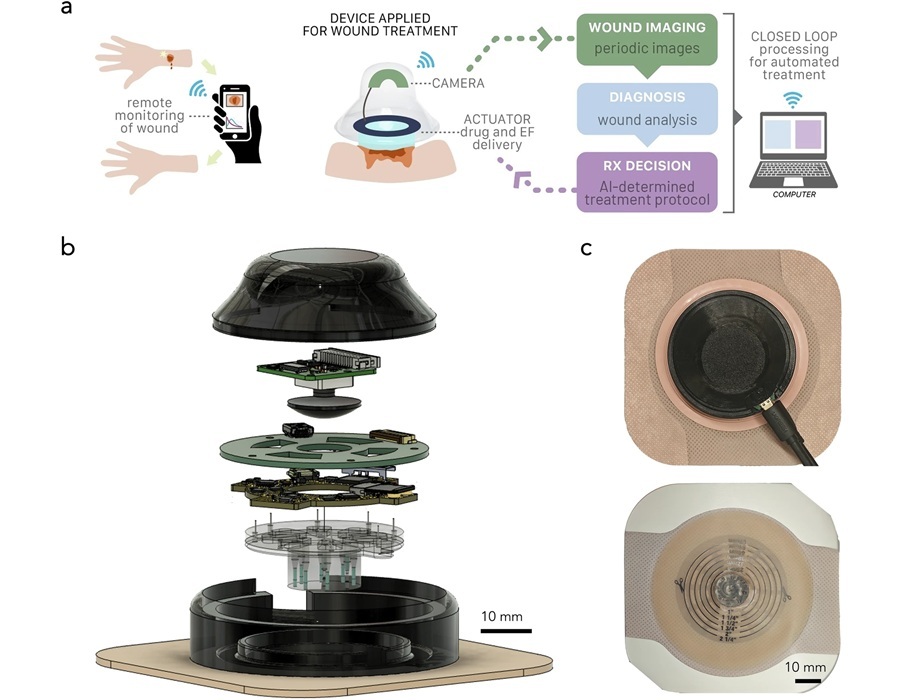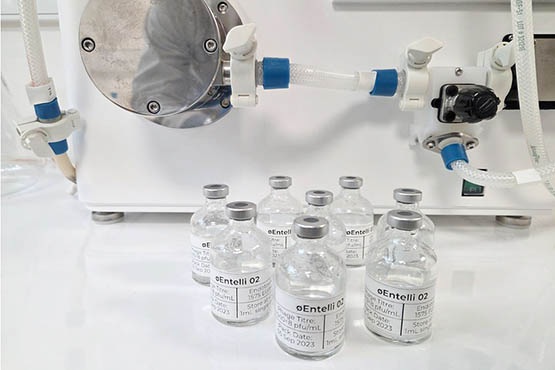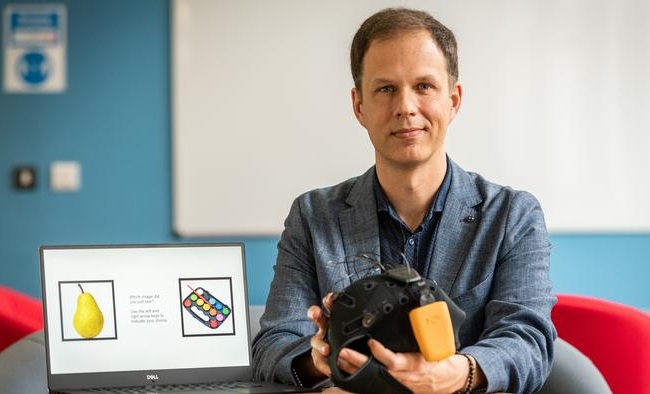Fundoplication Helps Relieve Refractory Heartburn
|
By HospiMedica International staff writers Posted on 29 Oct 2019 |
For gastroesophageal reflux disease (GERD) patients that are refractory to proton pump inhibitors (PPIs), surgery offers the better option, according to a new study.
Researchers at Baylor University Medical Center (Dallas, TX, USA), the VA Office of Research and Development (Washington, DC, USA), the University of Maryland (Baltimore, USA), and other institutions conducted a study involving 78 patients referred to Veterans Affairs (VA) gastroenterology clinics for PPI-refractory heartburn, a frequent clinical problem with multiple causes. Treatments for PPI-refractory heartburn are of unproven efficacy, and focus on controlling GERD with reflux-reducing medication (such as baclofen), antireflux surgery, or dampening visceral hypersensitivity with neuromodulators such as desipramine.
Study patients were randomly assigned to receive surgical treatment via laparoscopic fundoplication, medical treatment that included the PPI omeprazole plus baclofen (with desipramine added depending on symptoms), or to a control medical treatment (omeprazole plus placebo). The results revealed that the incidence of treatment success with surgery (67%) was significantly superior to that with active medical treatment (28%) or control medical treatment (12%). The study was published on October 16, 2018, in the New England Journal of Medicine (NEJM).
“GERD is an extremely common problem, and heartburn is the main symptom. PPIs are the best treatments we have, but as many as 30% of people still have symptoms when taking PPIs,” said lead author Stuart Jon Spechler, MD, chief of gastroenterology at Baylor University Medical Center. “There are a lot of other things that can cause that burning feeling, and patients can't tell if they have reflux or another kind of heartburn. If their heartburn isn't reflux-related, surgery won't provide relief. We only want to operate on the group that will benefit from the surgery.”
In GERD patients, the esophageal sphincter is weakened and does not close tightly, allowing digestive juices to return and irritate the esophageal lining. Treatment options usually include lifestyle changes, medications such as over-the-counter antacids and PPIs, and laparoscopic Nissen fundoplication to reinforce and strengthen the lower esophageal sphincter (LES). The procedure involves folding and wrapping the upper portion of the stomach around the lowest portion of the esophagus, much the way a bun wraps around a hot dog.
Related Links:
Baylor University Medical Center
VA Office of Research and Development
University of Maryland
Researchers at Baylor University Medical Center (Dallas, TX, USA), the VA Office of Research and Development (Washington, DC, USA), the University of Maryland (Baltimore, USA), and other institutions conducted a study involving 78 patients referred to Veterans Affairs (VA) gastroenterology clinics for PPI-refractory heartburn, a frequent clinical problem with multiple causes. Treatments for PPI-refractory heartburn are of unproven efficacy, and focus on controlling GERD with reflux-reducing medication (such as baclofen), antireflux surgery, or dampening visceral hypersensitivity with neuromodulators such as desipramine.
Study patients were randomly assigned to receive surgical treatment via laparoscopic fundoplication, medical treatment that included the PPI omeprazole plus baclofen (with desipramine added depending on symptoms), or to a control medical treatment (omeprazole plus placebo). The results revealed that the incidence of treatment success with surgery (67%) was significantly superior to that with active medical treatment (28%) or control medical treatment (12%). The study was published on October 16, 2018, in the New England Journal of Medicine (NEJM).
“GERD is an extremely common problem, and heartburn is the main symptom. PPIs are the best treatments we have, but as many as 30% of people still have symptoms when taking PPIs,” said lead author Stuart Jon Spechler, MD, chief of gastroenterology at Baylor University Medical Center. “There are a lot of other things that can cause that burning feeling, and patients can't tell if they have reflux or another kind of heartburn. If their heartburn isn't reflux-related, surgery won't provide relief. We only want to operate on the group that will benefit from the surgery.”
In GERD patients, the esophageal sphincter is weakened and does not close tightly, allowing digestive juices to return and irritate the esophageal lining. Treatment options usually include lifestyle changes, medications such as over-the-counter antacids and PPIs, and laparoscopic Nissen fundoplication to reinforce and strengthen the lower esophageal sphincter (LES). The procedure involves folding and wrapping the upper portion of the stomach around the lowest portion of the esophagus, much the way a bun wraps around a hot dog.
Related Links:
Baylor University Medical Center
VA Office of Research and Development
University of Maryland
Latest Surgical Techniques News
- Diamond-Titanium Device Paves Way for Smart Implants that Warn of Disease Progression
- 3D Printable Bio-Active Glass Could Serve as Bone Replacement Material
- Spider-Inspired Magnetic Soft Robots to Perform Minimally Invasive GI Tract Procedures
- Micro Imaging Device Paired with Endoscope Spots Cancers at Earlier Stage
- AI Spine Model Could Reduce Surgical Risks
- Novel Method Uses Interstitial Fluid Flow to Predict Where Brain Tumor Can Grow Next
- World’s First Custom Anterior Cervical Spine Surgery Performed Using Personalized Implant
- Implantable Biodegradable Scaffold Helps Broken Bones Regrow Quickly
- First Human Spinal Cord Repair Using Patient Own Cells Could Cure Paralysis
- 'Dual-Mode' Tracer Enables Surgeons to See and Hear Prostate Cancer
- Pioneering One-Stage Hybrid Surgery Ensures Safer Outcomes in Brain and Spine Tumors
- Reimplanting Lab-Grown Patient Cartilage Accelerates Healing After Hip Surgery
- Diamond-Based Sensor Pinpoints Metastasized Cancer for Surgical Removal
- Minimally Invasive Valve Repair Improves Survival in Elderly AFMR Patients
- Tiny Soft Robots Dissolve Painful Kidney Stones with Targeted Drug Delivery
- Implantable 3D Patch Closes and Repairs Heart Defects
Channels
Critical Care
view channel
3D-Printed Carbon Nanotube Sensors to Enable Smart Health Monitoring
Polymer-based conductive nanocomposites are highly promising for use in wearable electronics and smart health monitoring. However, carbon nanotubes (CNTs) often agglomerate, making uniform dispersion difficult... Read more
Wearable ‘Microscope in a Bandage’ Fastens Wound Healing
Wound healing is a complex biological process that moves through stages, including clotting, immune response, scabbing, and scarring. For many patients, especially those in remote areas or with limited... Read more
Virus Cocktail to Combat Superbugs Offers New Precision Medicine Approach for Hospitals Battling AMR
Antimicrobial resistance is one of the most pressing challenges in modern medicine, making once-treatable infections increasingly lethal. Enterobacter infections, for example, are difficult to treat and... Read morePatient Care
view channel
Revolutionary Automatic IV-Line Flushing Device to Enhance Infusion Care
More than 80% of in-hospital patients receive intravenous (IV) therapy. Every dose of IV medicine delivered in a small volume (<250 mL) infusion bag should be followed by subsequent flushing to ensure... Read more
VR Training Tool Combats Contamination of Portable Medical Equipment
Healthcare-associated infections (HAIs) impact one in every 31 patients, cause nearly 100,000 deaths each year, and cost USD 28.4 billion in direct medical expenses. Notably, up to 75% of these infections... Read more
Portable Biosensor Platform to Reduce Hospital-Acquired Infections
Approximately 4 million patients in the European Union acquire healthcare-associated infections (HAIs) or nosocomial infections each year, with around 37,000 deaths directly resulting from these infections,... Read moreFirst-Of-Its-Kind Portable Germicidal Light Technology Disinfects High-Touch Clinical Surfaces in Seconds
Reducing healthcare-acquired infections (HAIs) remains a pressing issue within global healthcare systems. In the United States alone, 1.7 million patients contract HAIs annually, leading to approximately... Read moreHealth IT
view channel
Printable Molecule-Selective Nanoparticles Enable Mass Production of Wearable Biosensors
The future of medicine is likely to focus on the personalization of healthcare—understanding exactly what an individual requires and delivering the appropriate combination of nutrients, metabolites, and... Read moreBusiness
view channel
Philips and Masimo Partner to Advance Patient Monitoring Measurement Technologies
Royal Philips (Amsterdam, Netherlands) and Masimo (Irvine, California, USA) have renewed their multi-year strategic collaboration, combining Philips’ expertise in patient monitoring with Masimo’s noninvasive... Read more
B. Braun Acquires Digital Microsurgery Company True Digital Surgery
The high-end microsurgery market in neurosurgery, spine, and ENT is undergoing a significant transformation. Traditional analog microscopes are giving way to digital exoscopes, which provide improved visualization,... Read more
CMEF 2025 to Promote Holistic and High-Quality Development of Medical and Health Industry
The 92nd China International Medical Equipment Fair (CMEF 2025) Autumn Exhibition is scheduled to be held from September 26 to 29 at the China Import and Export Fair Complex (Canton Fair Complex) in Guangzhou.... Read more













